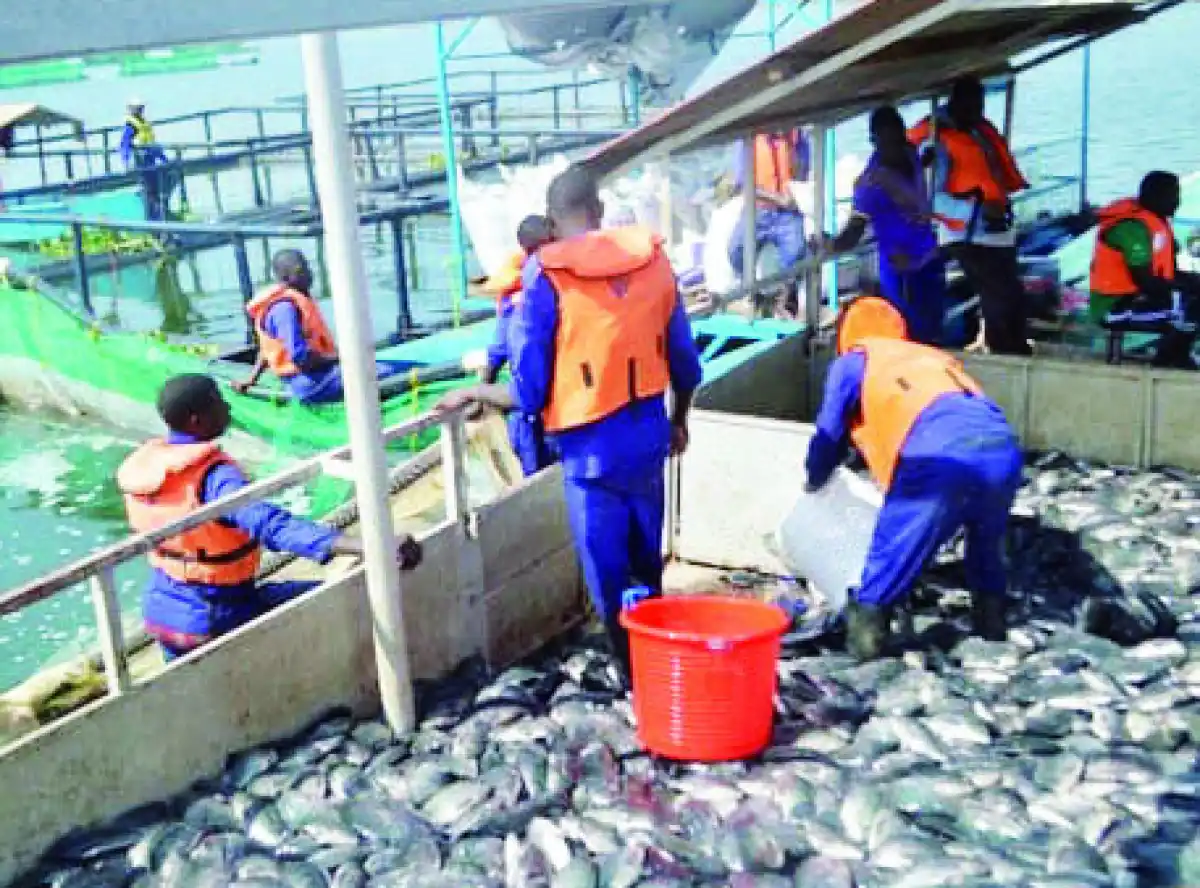
By Kingsley Jassi:
Food and Agriculture Organisation (FAO) says Malawi needs K2.3 trillion (about $1.35 billion) investment in fisheries to create jobs for over 2 million people and meet rising fish demand.
The plan follows research outcomes presented to the fisheries investment forum in Lilongwe last week.
Malawi’s annual fish demand stands at 260,000 metric tonnes(mt) against production of 240,000 mt, mostly from Lake Malawi, where catches are declining.
FAO researcher Alfred Tsitsi said cage farming needs K1.8 trillion ($1.1 billion) investment in Lake Malawi and Upper Shire to create 384,000 jobs impacting 1.8 million people.
“Each cage requires between K7 billion and K8.7 billion ($4.1-5.1 million) investment with 3.3 years payback period, making it viable for bank financing.
“For fish ponds, a four-hectare farm needs K2.5 billion ($1.5 million) investment with 3.8 years payback period and 35.13 percent returns. Furthermore, a K425 billion ($250 million) investment to develop 168 farms across districts with varying production potential could boost the industry,” Tsitsi said.
Currently, 20 investors run 30 fish cages in Lake Malawi.
Minister of Natural Resources Owen Chomanika told the forum Malawi must move from planning to action.
Chomanika said financing remains the main challenge in implementing the investment plan.
“If we are really planning to reach 100,000 tonnes of annual production, then we need to stop talking and invest in the sector that has potential to transform the economy,” Chomanika said.
However, Agricultural Commercialisation (Agcom) representatives said they have K170 billion ($100 million) ready to finance viable aquaculture businesses.
Some investors cited bureaucracy as a limiting factor to new investments.
Renowned investor Napoleon Dzombe, who has invested in fish farming and feed production, said bureaucratic processes were costly.
“Government should streamline processes to make it easy and cheaper for investors,” Dzombe said.
Lake Malawi Aquaculture Limited’s David Nkhwazi said shortage of fish feed and fingerlings also challenges aquaculture growth.
He added that his company has spent five years on investment plans in Salima.
The aquaculture subsector aims to increase fish production from the current 10,000 tonnes to 100,000 tonnes by 2030.
The global fish market is valued at approximately $1.09 trillion in 2025, and is expected to grow to $1.24 trillion by 2030, with a compound annual growth rate (CAGR) of 2.6 percent.
Malawi is not a major player in the global fish export market. Malawi’s fish exports are relatively small and fluctuate, making a significant impact on the country’s economy.
Malawi was ranked 158th in global fish consumption in 2023, with a consumption rate of around 770 metric tonnes.








0 Comments